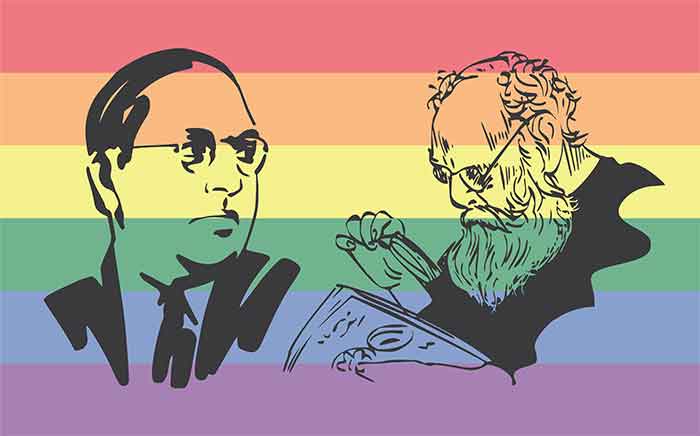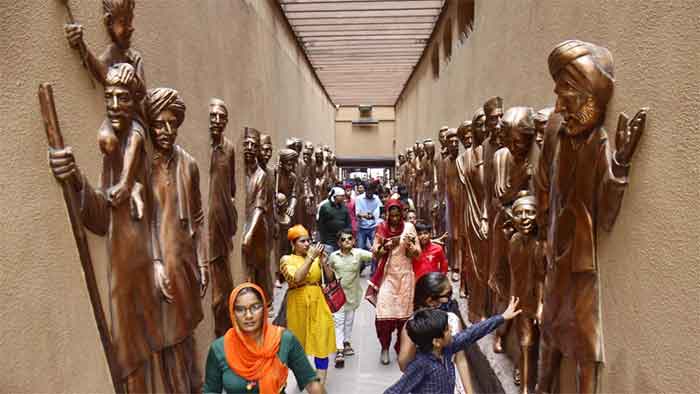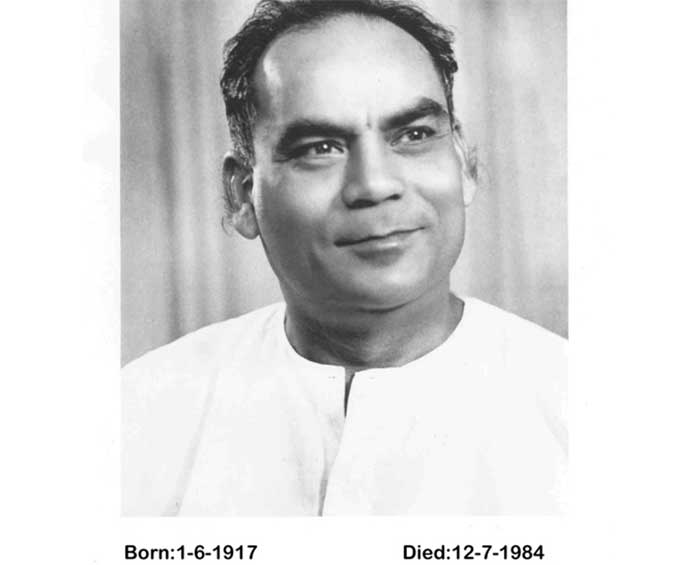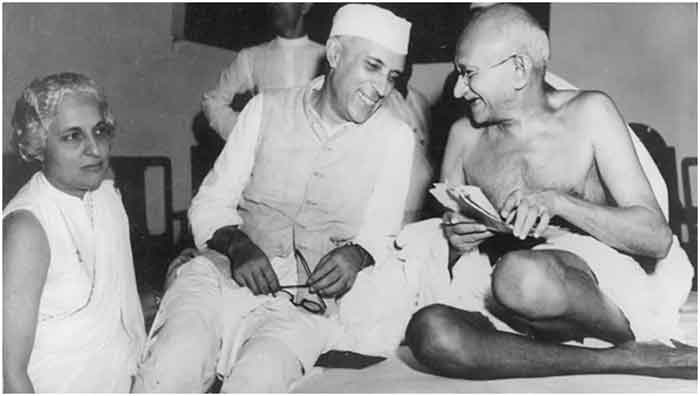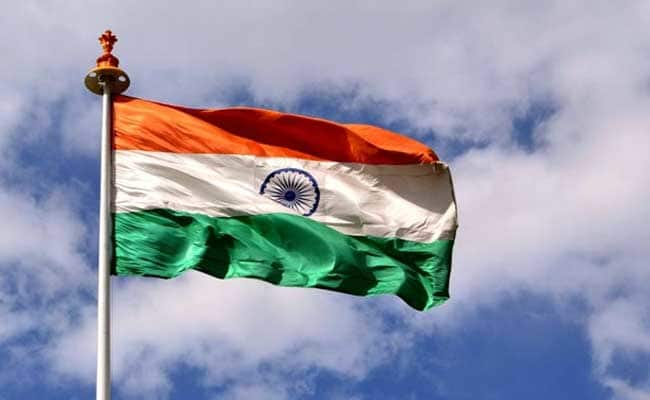
15th August is the most cherished date in the Indian calendar. it was on this momentous day that we were born an independent and free country. Mahatma Gandhi’s luminous leadership finally made the British Quit India in 1947. It is certainly an occasion for celebration. More than that, it is a point in a nation’s journey when we need to introspect and evaluate whether we have been able to realize the dream of our Father of the Nation who guided the nation’s journey of liberation from colonialism .We must remember that Gandhiji had proclaimed that true freedom will be one where every Indian is able to live a life free of hunger and destitution. As the great philosopher Voltaire said, “The poor man is never free; he serves in every country.” Gandhiji himself emphasised several times that his mission in life was to wipe every tear from every eye.
Freedom is the primary value from which spring forth all other values. It is the river; the others are the tributaries. Without freedom, all other values wither and perish. True freedom signifies freedom from restraints that we derive from the willingness of others to give space to their convictions and actions and acknowledge their right to do so. It allows us to live our way and to pursue our vision.
In his famous ’Tryst with Destiny‘ speech, broadcast on the radio at the midnight hour of India’s birth as an independent nation on August 15, 1947, Jawaharlal Nehru, the country’s first Prime Minister, articulated the new nation’s promise to its people in words whose soul-stirring resonance still echoes today:
“The future beckons to us. Whither do we go and what shall be our endeavour? To bring freedom and opportunity to the common man, to the peasants and workers of India; to fight and end poverty and ignorance and disease; to build up a prosperous, democratic, and progressive nation; and to create social, economic and political institutions which will ensure justice and fullness of life to every man and woman.”
My grandfather remembers how fired he and his friends were by Nehru’s sincerity and determination; indeed, how some of the venerable elderly elite who listened to that historical speech commented that they felt like the old and decrepit war horses who spring back into action propelled by the bugle call. They felt like they were hearing the Delphic oracle.
Nehru’s vision remains as inspiring today as when he first spoke the words but the goals remain equally elusive. India’s poor still wait for opportunity and justice; too many of their lives are still fraught with poverty, ignorance, and disease. No doubt, some of the worst exploitation of human beings occurs in India.
The great poet Faiz Ahmed‘s Faiz lament is laden with stark truth::
“..This is not the morning we’d fought for,
In whose eager quest, all comrades
Had set out, hoping that somewhere
In the wilderness of the sky
Would emerge the ultimate destination of stars…”
Indeed as Mahatma Gandhi had envisioned, the struggle for the larger freedom was the journey towards the second independence, the true but elusive freedom, the freedom from poverty.
Nehru reiterated Gandhi’s vision of independence:
“Mahatma Gandhi taught us to view our national struggle always in terms of the under-privileged and those to whom opportunity had been denied. We realised that there was no real freedom for those who suffered continually from want, and because there were millions who lacked the barest necessities of existence in India, we thought of freedom in terms of raising and bettering the lot of these people”.
One of the most significant goals of inclusive and equitable development is poverty elimination. Although India has made rapid progress in several fields, its impressive economic growth has not trickled down to the larger population. India’s millions still continue to face mounting daily challenges and are struggling to meet the bare basic necessities of subsistence; education, health, housing, employment and adequate food.
The father of the nation had said that elimination of poverty was his mission and was also the prime objective of ‘Swaraj’ or freedom. In his famous speech, ‘Freedom at Midnight’, Prime Minister, Jawaharlal Nehru mentioned, “The ambition of the greatest men of our generation has been to wipe every tear from every eye. That may be beyond us, but as long as there are tears and suffering, so long our work will not be over. “Nehru reminded the country ofthe tasks ahead and emphasized: “The service of India means the service of the millions who suffer. It means the ending of poverty and ignorance and disease and inequality of opportunity’” That mission of Gandhi and ambition of Nehru is still a mirage, a far distant dream.
India has witnessed a relatively high aggregate economic growth, but also abounds in persistent and endemic deprivation and deep social failures. . Appalling poverty and the staggering inequalities continue to characterize the lower social and economic pyramid. Barring an impressive growth in per capita income which has inherent faultiness, India is actually falling behind its neighbors in South Asia— in every social indicator that matters, from literacy to child malnutrition to access to toilets. India’s development landscape is dotted with schemes that sounded ambitious but simply didn’t deliver.
This concentration of wealth and power in very circumscribed elite brings to fore many important issues .This culture strains the values which define democracy. A critical strength of a democratic culture is that it allows everyone to pursue their interests relatively freely. But, as Alexis de Tocqueville reckoned, the democratic individual can easily be trapped by the delusion that they are rich enough and educated enough to supply their own needs. “Such folk owe no man anything and hardly expect anything from anyone. They form the habit of thinking of themselves in isolation and imagine that their whole destiny is in their own hands.”
This is a very old problem. Pericles, the great champion of democracy in ancient Athens, praised individual initiative, but also cautioned against citizens who live only for themselves He believed that such individuals have no right to be part of the city-state to which they owe their prosperity. He had a noun for such folks too, idiotes – from which we get the well-known English word.
India has certainly made great economic progress and is a global powerhouse, but its villagers continue to live in extreme financial stress. We have the best education facilities in cities but children in village go to schools where there is little learning. The fragile foundation of basic education augurs a dim horizon for India’s future human capital.
India is striving to build hundreds of smart cities, towns and villages. We must ensure that they are humane and happy places leading to the creation of a technology-driven but compassionate society. In this age of technological advance, machines are being pitted against men. The only way to survive this is to acquire knowledge and skills, and learn to innovate. Inclusive innovations linked to the aspirations of our people can benefit a wide spectrum of society as well as preserve our diversity.
It is time we understand that India will grow only when all of India grows. The excluded ones have to be included in the development journey. The hurt and the alienated have to be brought back into the mainstream. In
One unique feature that has held India together is our respect for each other’s cultures, values and beliefs. It is our unique strength and we should safeguard it .The very essence of plurality lies in cherishing our heterogeneity and valuing our diversity. In the networked environment of today, a caring society can only be developed by harmonizing religion with modern science. Swami Vivekananda once observed: “What is needed is a fellow-feeling between the different types of religion, seeing that they all stand or fall together, a fellow-feeling which springs from mutual respect, and not the condescending, patronizing, niggardly expression of goodwill.”
Moin Qazi is the author of the bestselling book, Village Diary of a Heretic Banker .He has worked in the development finance sector for almost four decades .He can be reached at [email protected]
SIGN UP FOR COUNTERCURRENTS DAILY NEWSLETTER



